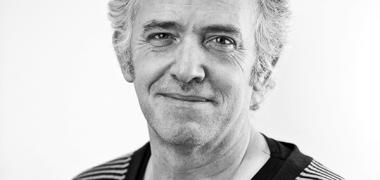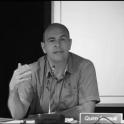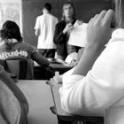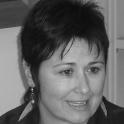We are celebrating the 10-year anniversary of Debats d’Educació by giving the educational community the opportunity to air its views

Lecturer in Pedagogy at the University of Vic. He runs the Doctorate School at that University.
The three things I’ve learned
We learn from teaching projects that are bold inside and surrounded by close supporters outside.
We find fairness and quality in projects established by teams of teachers to ensure that pupils learn more and better and so that they themselves find meaning in their professional work. Innovation processes in centres with their own voice. A pedagogical voice, their own discourse, as a counterpoint to fashion, haste and resignation. Schools in a network, sharing projects and experiences, with transparency so they can be assessed and enriched with contributions from colleagues. In an environment accepting the boldness of teachers, in a circuit of trust that always has to be constructed and cannot be taken for granted. Projects that often call administrative, corporative and organisational boundaries into question for the benefit of rigorous, innovative, sustainable teaching-learning processes throughout the life of the education centre.
Fairness and quality go hand in hand when there are also resources, discourses and practices.
There are no miraculous formulas. We clearly need greater continuity in flows of money and resources to disadvantaged environments and to have incisive, far-reaching education policy interventions depending on contexts. It is great hypocrisy to proclaim the importance of education and, at the same time, to weaken it with resources below the European average year after year, with unshakable bureaucratic constraints and political and media instrumentalisation of all kinds, inducing the belief that fairness and quality are an impossible pairing. On the contrary, we have experiences supporting the idea that they are a real, viable couple. The educational communities that succeed are not anomalies. They become sources of inspiration in order to advance and to require continuity from governments, as well as an in-depth approach to improving the conditions of possibility.
Being a pupil should always enrich a child.
Schools must establish the differential conditions that each pupil needs depending on his or her personal characteristics, desires and in accordance with their expectations of their own capacity to construct their own future. Successful learning involves the recognition of individual differences, the presence of emotions, the inclusion of all pupils and capacity to establish connections with what is learned outside school. They are not good intentions but rather the conditions which, according to all research, really make learning possible. Unfavourable contexts cannot be allowed to be a predetermined sentence on what a pupil will be capable of doing. A democratic school is a space for possibilities. Between the initial conditions and future prospects of our pupils, the classroom can become a space for academic and social growth.















 The texts published on this website are, unless otherwise indicated, covered by the Creative Commons Spain Attribution 3.0 licence. You may copy, distribute, transmit and adapt the work, provided you attribute it (authorship, journal name, publisher) in the manner specified by the author(s) or licensor(s). The full text of the licence can be consulted here:
The texts published on this website are, unless otherwise indicated, covered by the Creative Commons Spain Attribution 3.0 licence. You may copy, distribute, transmit and adapt the work, provided you attribute it (authorship, journal name, publisher) in the manner specified by the author(s) or licensor(s). The full text of the licence can be consulted here: